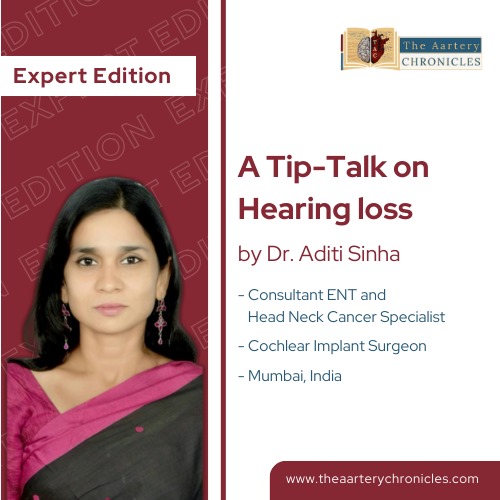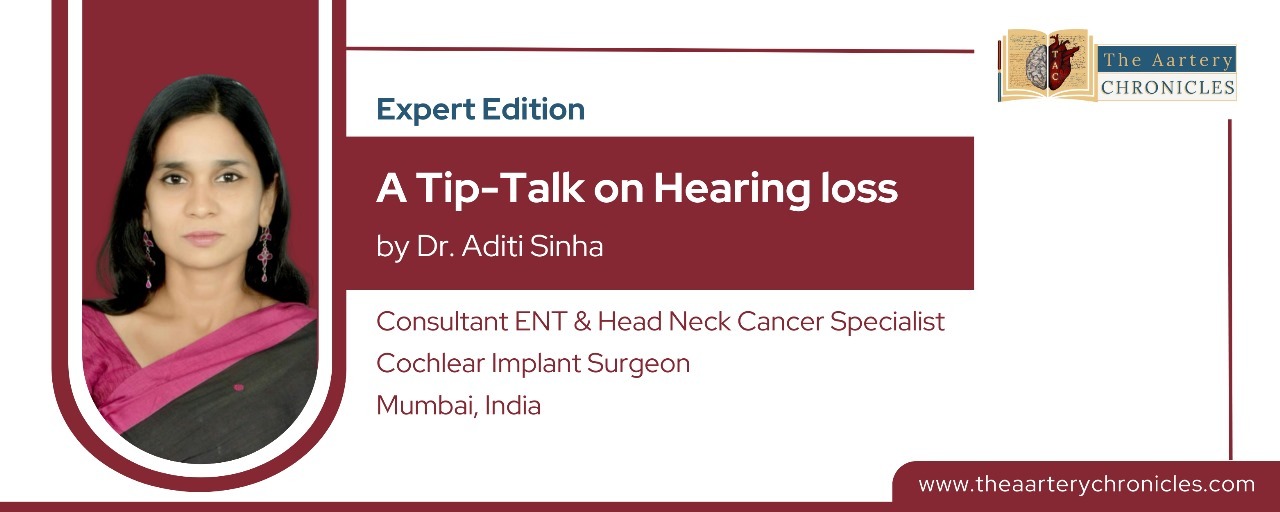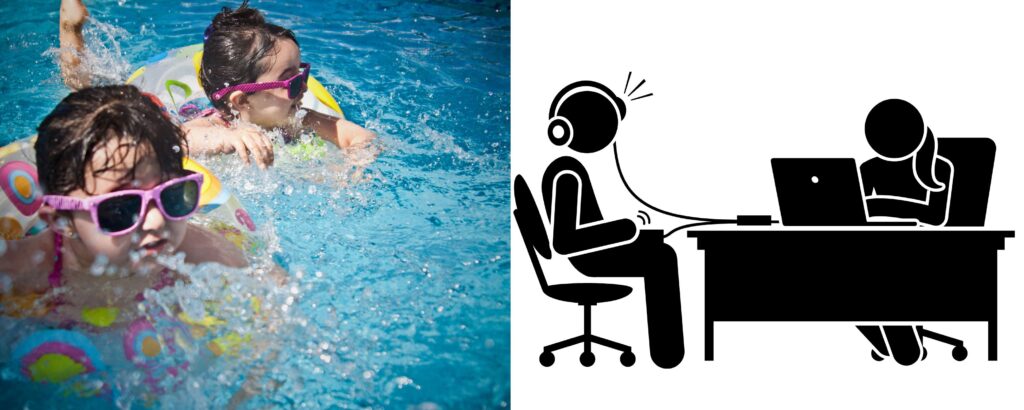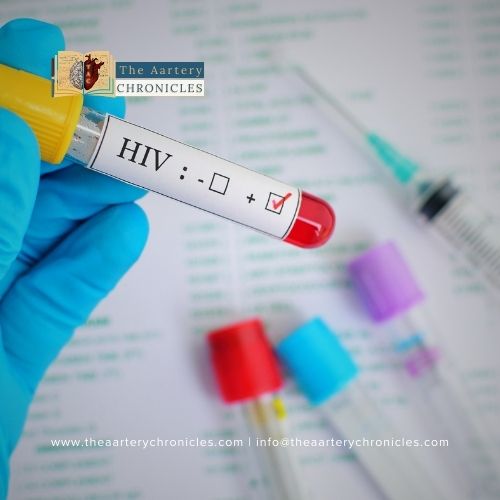

Dr. Aditi Sinha's Expert Tips to Prevent Hearing Loss and Boost Auditory Well-being
Hearing loss, ranked as the fourth-leading cause of disability worldwide poses a significant threat to the well-being of individuals. Its impact extends beyond mere impairment, affecting social connections, mental health, cognitive function, and overall quality of life
The Alarming Statistics: Cause for concern?
According to the World Health Organization (WHO), more than 1.5 billion people worldwide currently experience hearing loss in at least one ear. A staggering 63 million individuals in India alone are grappling with significant auditory impairment. The NSSO survey reveals that 291 individuals per one lakh population in India are currently facing severe to profound hearing loss, with a notable proportion being children aged 0 to 14 years.
Future Projections:
WHO predicts a concerning escalation in hearing loss cases, estimating that by 2050, approximately 2.5 billion people globally will experience varying degrees of hearing impairment. This projection highlights the urgency of addressing this issue on a global scale.
Despite the alarming statistics, many instances of hearing loss are preventable through accessible and effective measures. Notably, over 1 billion young individuals are susceptible to preventable hearing loss, while around 200 million are contending with treatable chronic ear infections. This warrants immediate action to mitigate the impact of hearing loss. The gravity of the situation necessitates a prompt response from both individuals and healthcare providers.
Recognizing the urgency of the hearing loss issue, Priya Bairagi from “The Aartery Chronicles” (TAC) took a proactive step by approaching Dr. Aditi Sinha, a distinguished specialist in the field of hearing loss. Dr. Aditi Sinha holds expertise as a Consultant ENT & Head Neck Cancer Specialist and is a Cochlear Implant Surgeon. The objective was to seek valuable insights and guidance on common patient queries related to ear health.
Her specialized knowledge positions her as a valuable resource in understanding the complexities of hearing loss, its prevention, and the overall well-being of individuals dealing with ear-related issues.
11 Tips to Prevent Hearing Loss by Dr Aditi Sinha
1. Preserving Your Hearing Across Ages: Sound Advice for Every Generation
No matter how old you are, it’s important to pay attention to the things that can harm your hearing. For young individuals, I strongly advise steering clear of loud music and parties where volumes reach alarming levels. This caution extends to rock concerts; should you decide to attend, it’s prudent to contemplate the use of protective earmuffs. In case any discomfort arises during the event, consider promptly leaving the venue. It’s essential to be proactive if you experience pain, ringing, or numbness around the ears rather than enduring such situations.
2. Workplace Hearing Health: Clear Communication Practices for All Ages
In a workplace setting, especially for young individuals, it’s crucial to establish clear communication practices. A vital aspect of this is communicating the anticipated number of calls to be taken daily, whether through phones or headphones.
For those engaged in phone conversations, consider the use of speakerphones or placing devices at a considerable distance from the ears. This practice not only ensures clear communication but also minimizes the potential risk of hearing harm.
Furthermore, it is advisable to refrain from using phones and AirPods, instead opting for lightweight headphones. These headphones not only offer increased comfort but also allow for greater distance, reducing the likelihood of any adverse effects on hearing health. By incorporating these practices into the workplace, individuals of all ages can contribute to a safer and more conducive auditory environment.

3. Noisy Environments: Practical Tips for Healthier Communication
Often, in noisy environments, we tend to raise the incoming volume significantly due to the background noise and prolonged conversations. It’s advisable to defer non-urgent discussions and switch to text communication unless it’s a critical matter. Mobile phone radiation can pose additional concerns.
4. Ensure Device Hygiene Practices
Maintaining personal device hygiene is paramount for overall well-being. It’s essential not to share personal devices, maintain cleanliness using alcohol wipes, or store them in humidifier boxes, Just as we replace items like glasses or devices when their functionality diminishes over time, it is equally important to replace storage solutions periodically. This approach ensures not only the longevity of the devices but also safeguards personal health by reducing the risk of contamination.
5. Volume Awareness in Shared Spaces: The Pitfalls of Noise Cancellation Devices
Another important point is to avoid the use of noise cancellation devices, if possible. Despite their intended purpose to eliminate external noise, these devices often exert pressure and inadvertently amplify volume in the ears. This can lead to a common tendency to excessively raise the volume, counteracting the device’s initial purpose
It’s crucial to be mindful of the volume levels, especially in shared spaces like offices or homes. A simple rule is, that if people around you can hear what’s in your ear, your volume is too loud. To fix that, lower the volume or change to a different sound setting.
6. The 6060 Rule: A Sound Approach to Sustaining Auditory Well-being
Don’t forget the 6060 rule, also known as the 60/60 rule. This guideline recommends taking a break after continuous exposure to any sound, whether it’s music or a work call, for a period of 60 minutes.
To implement the 6060 rule effectively, ensure that the volume is set at a moderate 60%, steering clear of the maximum 100%. This principle extends to your phone as well, advocating for a volume setting at or below 60%. After the designated time frame of 60 minutes, it is advisable to take a break or switch to a different activity, allowing your ears the necessary respite. By integrating the 6060 rule into our daily routines, we prioritize sustained auditory health and contribute to a more balanced and mindful auditory experience.
7. Use Safety Measures in Noisy Workplaces
In noisy workplaces, particularly those with machinery like factories, individuals may face potential hearing issues later in life. Despite the provision of protective earmuffs, akin to helmets, many people neglect to wear them. It is crucial to prioritize safety by using foam or silicone earplugs to shield the ears from loud machine sounds.
8. Swimming Safety: Guarding Against Ear Health Risks in Public Pools
When swimming, it’s a common practice for individuals to forego earplugs, even when using a swimming cap. However, keeping the ears open while swimming in public pools poses potential risks, as water can easily enter the ears, giving rise to issues such as fungal infections or external otitis.
To safeguard ear health while swimming, especially in communal pool settings, it is advisable to consider the use of earplugs as an additional protective measure. By incorporating this simple precaution, individuals can enjoy their aquatic activities while significantly reducing the likelihood of water-related ear complications.

9. Safe Ear Care Practices: Steering Clear of Harmful Implements
It is crucial to avoid the use of cotton buds, Q-tips, or any foreign objects such as tweezers, pins, safety pins, pens, pencils, fingers, spectacle sticks, toothpicks, and the traditional bronze or silver sticks that were once commonly used at home.
These objects, despite their seemingly innocuous nature, can pose risks to ear health by potentially causing injury, pushing wax deeper into the ear canal, or damaging delicate ear structures
10. Get Regular Hearing Tests
Older individuals should adhere to a consistent medication schedule for conditions like high blood pressure, thyroid issues, heart disease, and diabetes. It’s crucial to recognize that these health conditions can have an impact on your hearing, affecting nerves throughout the body. Regularly monitor and control these conditions through routine health checkups, which should automatically include ENT checkups. Keeping a chart of your audiometry hearing, similar to maintaining eye reports, is imperative for overall health management.
Guidelines for hearing tests
- Healthy Adults (18-40 years): The American Speech-Language-Hearing Association’s (ASHA) guidelines state that healthy adults aged 18-40 who are not experiencing any noticeable hearing loss should have their hearing tested every three to five years.
- Individuals Over 60 [Presbycusis (Age-Related Hearing Loss)]: Commonly observed in aging individuals, presbycusis affects the ability to understand high-frequency consonant sounds. One out of three individuals experiences presbycusis by the age of 65. Annual hearing tests are recommended for all adults beginning at the age of 60, irrespective of symptoms.
- People exposed to loud noises: Noise-induced hearing loss is almost as common as presbycusis and affects individuals of all ages. Those frequently exposed to loud noises have a higher risk of permanent damage to their hearing. People who are consistently exposed to noisy environments should have their hearing checked once a year.
- People with hearing loss: This might seem counterproductive, but even if you have been diagnosed with hearing loss and wear hearing aids, it’s more important than ever to have your hearing tested on a regular basis. Because hearing continues to change over time, your treatment must be as up-to-date as possible to ensure you are receiving the maximum benefit. These patients should have their hearing tested once a year.
11. Sound Nutrition for Sound Hearing: Dietary Tips and Lifestyle Choices
Apart from these precautions, prioritize a nutritious diet with a focus on antioxidants. Ensure your meals incorporate a variety of fresh fruits and vegetables. This dietary approach is crucial to prevent oxidative stress in your auditory system.
It’s good to stay away from drugs and smoking, as these habits can negatively impact not only your general health but also pose risks to your auditory system. While occasional and moderate alcohol consumption may be acceptable, excessive drinking can have adverse effects on overall health, including auditory well-being
By making mindful choices, you empower yourself to proactively preserve and enhance your hearing health.
Furthermore, TAC has reached out to Dr. Aditi Sinha, for an enlightening interview on hearing loss. The interview will focus on hearing loss and related conditions, their prevention, and potential solutions. Stay tuned as we unveil this exclusive conversation soon.

Contributors: Dr. Aditi Sinha,
Priya Bairagi
- Medicine
- Nutrition And Diet
Lorem ipsum dolor sit amet, consectetur adipiscing elit. Ut elit tellus, luctus nec ullamcorper mattis, pulvinar dapibus leo.












